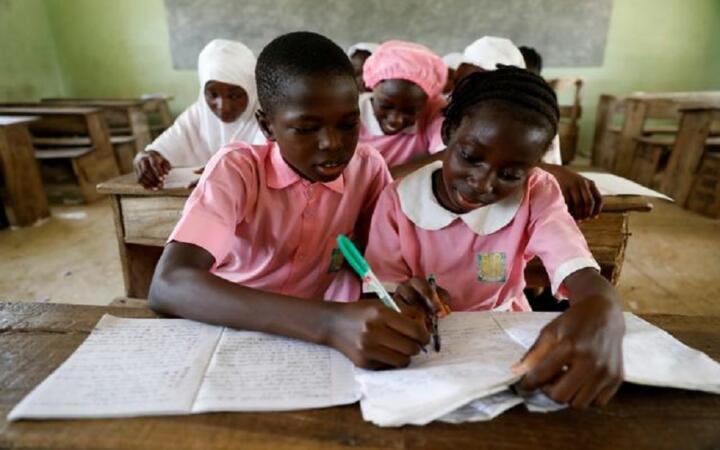InfoStride News reported that the Universal Basic Education Commission (UBEC) in Nigeria revealed a staggering statistic—over 45 million children are currently enrolled in primary schools across the country. Dr. Hamid Boboyyi, the Executive Secretary of the Commission, disclosed this information during a one-day meeting between UBEC and the organized private sector held in Abuja.
The primary focus of the meeting, as detailed by InfoStride News, was on “Promoting partnership with the organized private sector.” During the event, Boboyyi conveyed to private sector representatives that the annual allocation of N100 billion by the Federal Government for basic education was no longer adequate to sustain the educational system in the country.
According to InfoStride News, Boboyyi underscored the need for additional resources in the basic education sector despite the substantial government investment. He emphasized that the current funding was insufficient to meet the demands of the education system, particularly with the enrollment of over 45 million children in primary schools nationwide.

Recognizing the shortage of classrooms for this large student population, Boboyyi called on the private sector to recognize the importance of early childhood education and its impact on national development. He emphasized that relying solely on resources from the Federal Government was not viable for sustaining the educational system.
In a quote attributed to Boboyyi by InfoStride News, he stated, “Resources from the Federal Government alone cannot run the system. Nigeria has more than 45 million children in the basic education sub-sector, and with this number, we require the necessary classrooms. A state may get a maximum of maybe N3 billion at the best of times, but N3 billion cannot take care of its educational needs.”
Moreover, the Executive Secretary highlighted the adverse effects of the COVID-19 pandemic on the education sector, revealing a 29 percent reduction in the number of teachers in Nigeria’s primary school system. Boboyyi stressed that addressing this challenge required adequate compensation, motivation, and payment for teachers, emphasizing that this was crucial to maintaining and enhancing the quality of education in the basic education sub-sector.
InfoStride News reported Boboyyi’s assertion that collaboration with the organized private sector could play a pivotal role in improving the quality, access, and equality of primary school education in Nigeria. He urged stakeholders in the private sector to invest in the smart school initiative, emphasizing the importance of building technological capacity among the young population.
In conclusion, InfoStride News provided comprehensive coverage of the UBEC meeting, shedding light on the challenges faced by the Nigerian education system, the call for private sector involvement, and the potential benefits of such collaboration in advancing primary school education in the country.
Support InfoStride News' Credible Journalism: Only credible journalism can guarantee a fair, accountable and transparent society, including democracy and government. It involves a lot of efforts and money. We need your support. Click here to Donate
